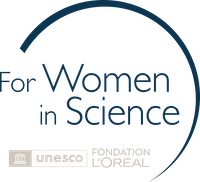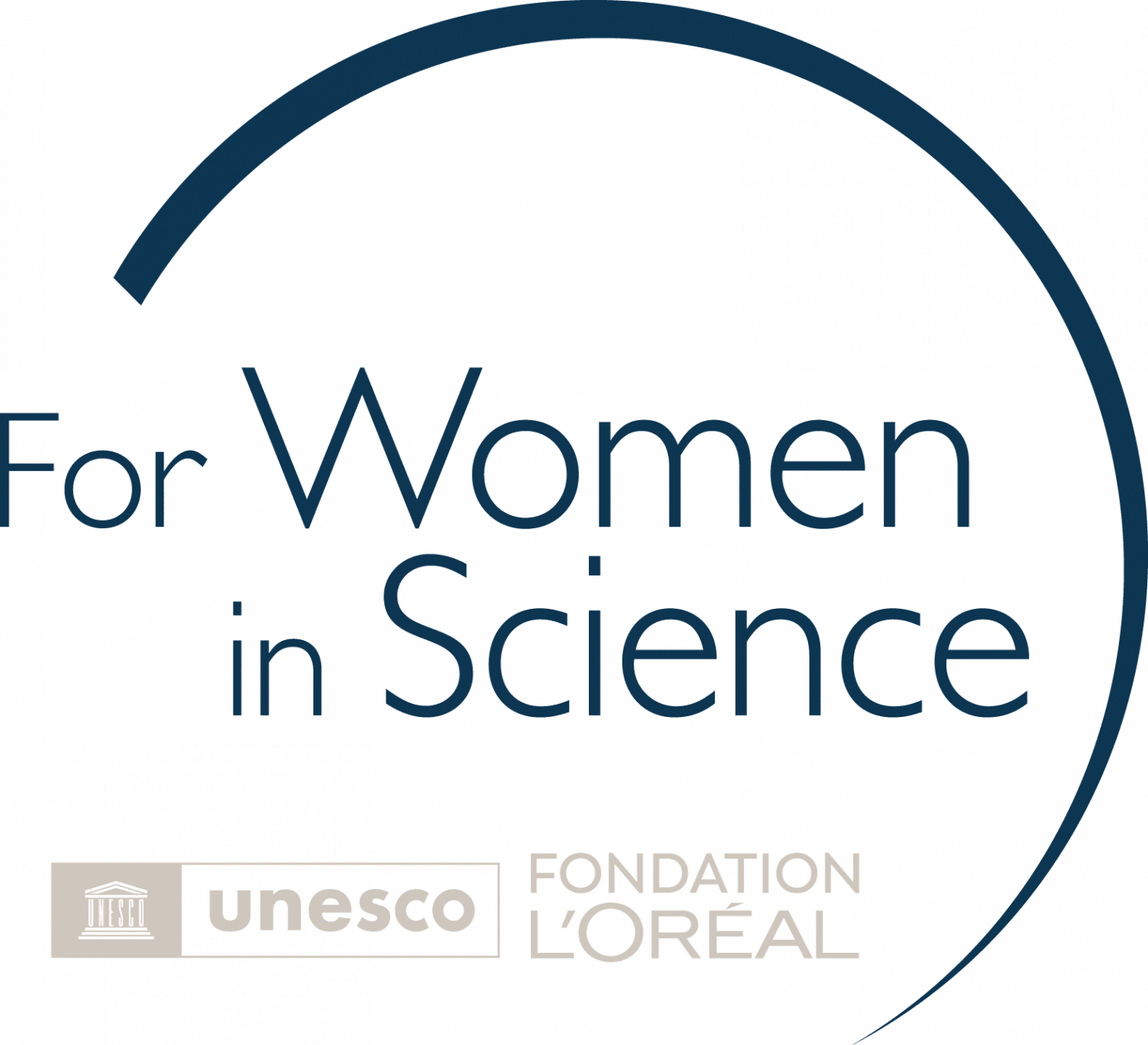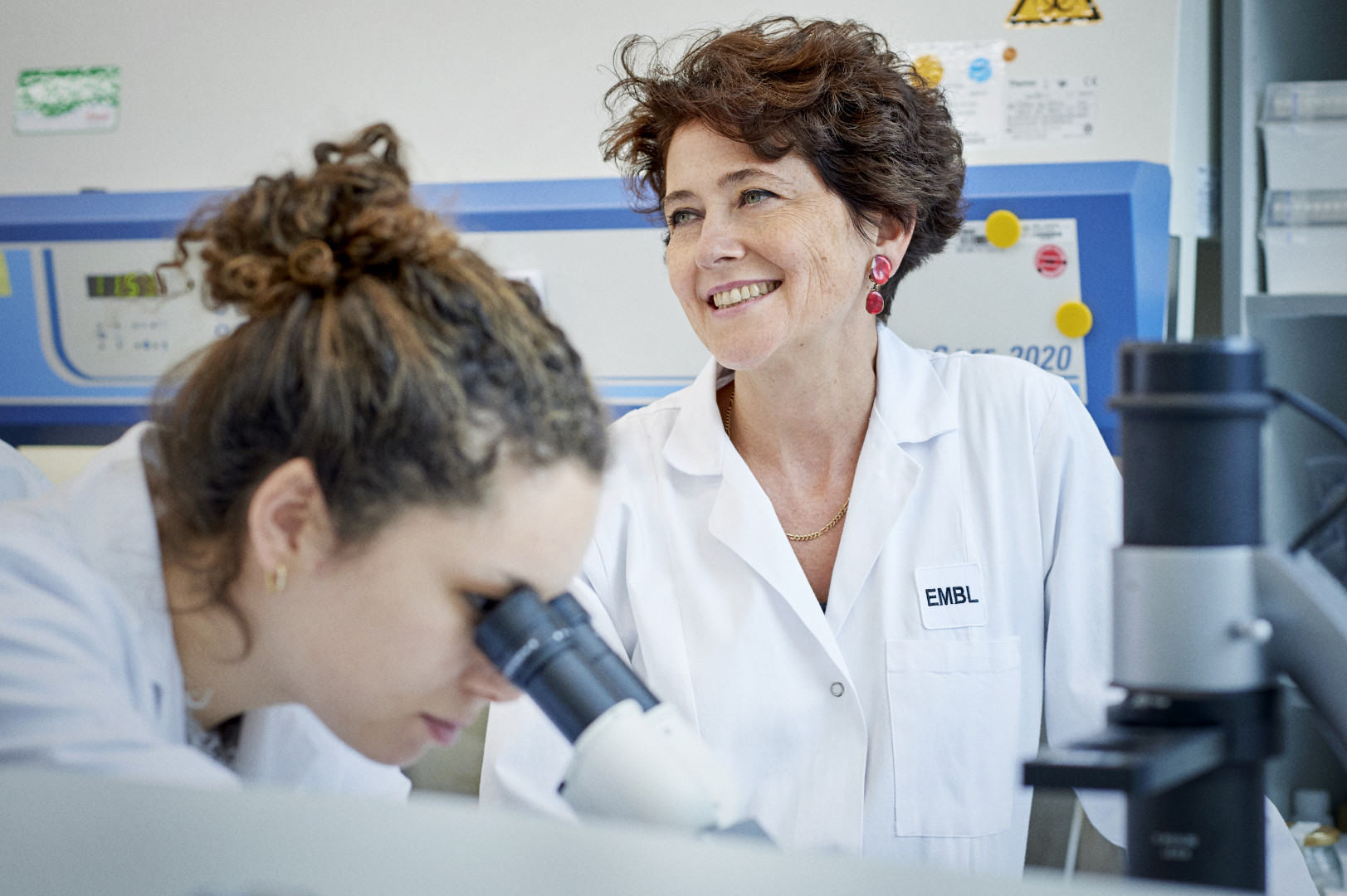Director General of the European Molecular Biology Laboratory, Heidelberg, Germany, Chair of Epigenetics and Cellular Memory at the Collège de France, Paris, France, and former Director of the Genetics and Developmental Biology Unit at the Institut Curie
“Curiosity in research is fundamental to advancing life and science, and solving some of the great challenges we face as a society,” says Professor Edith Heard. This biologist has made fundamental discoveries surrounding the epigenetic mechanisms governing X-chromosome inactivation (whereby one of the two X chromosomes in females is silenced), a vital process for proper gene expression. In particular, her research could have relevance to diseases such as cancer, where epigenetic processes are disturbed, as well as autoimmune syndromes that are more prevalent among women. She is also profoundly influencing epigenetics as a whole and forging connectionsthroughout the scientific world to uncover new, interrelated areas of research.
“Epigenetics seeks to explore how the blueprint of life, the genome, can be used in multiple ways during development, and how this leads to stable, memorable changes in gene expression,” Prof. Heard explains. “I hope that our research on epigenetic regulation of X-chromosomal genes will enable further advances in health, including improved medical treatment for women in the future.”
Prof. Heard attributes her most meaningful explorations into the genetic and epigenetic changes that occur in cancer to her 20 years at the Institut Curie in Paris, France, where she nurtured her research in a clinical setting. In particular, she explored the extent to which epigenetic changes – which are present in all cancerous cells – are influential in the development of the disease or can deactivate genes capable of suppressing tumours.
As Director General of the European Molecular Biology Laboratory (EMBL) in Heidelberg, Germany, she continues her own research, while working to ensure EMBL utilises its global reach to promote the precious nature of fundamental research and harness technologies to answer major questions, “addressing biology on all scales, from atoms to ecosystems”. This could include exploring how the microbiome reacts to drugs, how an embryo develops from a fertilised egg, or how a viral protein can be targeted by vaccines.
And importantly, her ambitions for the EMBL extend beyond humans to planetary health. “In order to protect life, we must first understand it,” she says. “The molecular basis of life on earth is still a great mystery. It’s our duty as scientists to push the frontiers of research to support life in all its forms and help address pollution, climate change and biodiversity loss, catalysing a new era of research.”
Indeed, Prof. Heard is passionate about European research remaining a beacon of scientific excellence and upholding the vital cross-border collaboration that enables major breakthroughs and attracts talented scientists. Researchers should also continue to play an increasingly important role in “bridging the gap between science and society”. She has been heartened by the support from across Europe for her goal to bring scientists across different disciplines together to tackle some of the world’s most important problems.
Already an avid scientist as a school pupil, Prof. Heard never imagined any barriers for women, only professional success. Encouraged to pursue her interest in science by both her women teachers and her family, she studied Natural Sciences at Cambridge University, where she experienced the first of many ‘Eureka’ moments, when she realised that biology was her true calling. “It was the power of genetics, the elegance of development, the beauty of evolution that inspired me,” she recalls.
Her quest to answer longstanding questions on X inactivation builds on the pioneering discoveries of the British geneticist Mary Lyon in 1961, and has contributed significantly to illuminating this important topic. For example, she and her team combined imaging techniques such as fluorescence in-situ hybridisation with molecular genetics techniques to follow the expression of the chromosome in individual cells through development. “We went on to uncover the way the X chromosome is folded in 3D space and therefore how structure can influence the way it is expressed,” she explains.
She was also the first to show that X inactivation is a highly dynamic process during embryogenesis (the process through which the embryo forms and develops), and involves multiple chromatin changes. Chromatin is a mass of genetic material composed of DNA and proteins within the nucleus of a cell. When cells divide, chromatin condenses to form chromosomes. In 2012, Prof. Heard led the discovery of a new level of chromosome organisation, known as Topologically Associating Domains, which tidy the DNA like woollen threads into many balls of wool, each of which plays a role in the regulation of gene expression and the X inactivation phenomenon.
Although Prof. Heard has not personally experienced gender prejudice, she says: “I didn’t realise there was a glass ceiling until I’d slipped through it and noticed I was a rare specimen. I quickly realised that many women do have to try harder, speak louder, stay calmer and identify male allies”. However, she remains confident in the power of novel results and scientific discovery to override gender, and feels humble following in the footsteps of iconic women scientists such as French-Polish physicist and chemist, Marie Curie, and Mary Lyon, whose power of conviction and intelligence enabled them to succeed against all the odds.
“Women and men should be equally represented at
every level,” she says. “Once we achieve a critical mass, it will be easier to attract more women and this will create a butterfly effect. Mentorship, support and identifying pathways to create a more balanced work-family life will be critical. More than anything, women should follow their heart and nurture their passion for science.”
“I dream of the day when people won’t even notice how many women or men there are in a laboratory or in an institute,” she concludes. “Science will be for any gender, nationality or culture.”
1 - Fellow of the Royal Society.
Source: L'Oréal-UNESCO For Women in Science Intrnational Awards - 2020 Press kit

Image gallery1
Comments0
Please log in to see or add a comment
Suggested Articles



